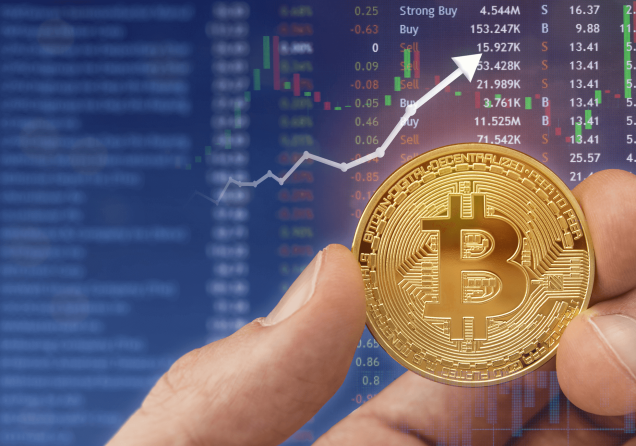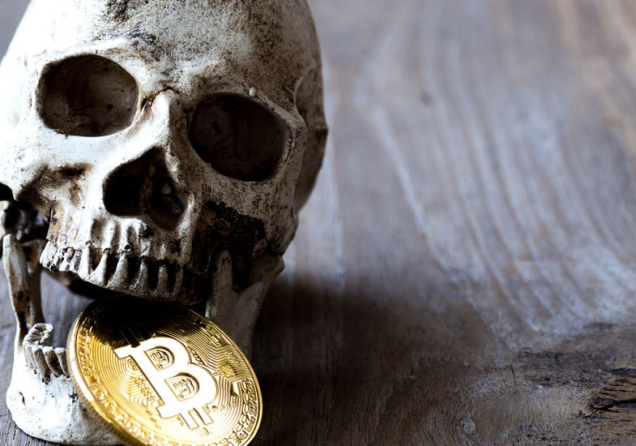Decentralized Derivative Products in Cryptocurrency: A Detailed Exploration
In the evolving landscape of finance, decentralized derivative products in cryptocurrency represent a groundbreaking merger of traditional financial principles and blockchain technology. This fusion has opened up new avenues for managing risks and speculating in the markets, marking a significant shift in how financial instruments are perceived and utilized.
The Contrast Between Decentralized and Traditional Derivatives
A key to understanding decentralized derivatives is comparing them with their traditional counterparts, revealing significant differences:
Centralization vs. Decentralization: Traditional derivatives are traded on centralized markets, subject to the control and regulations of centralized authorities. In contrast, decentralized derivatives thrive on blockchain-based decentralized exchanges (DEX), offering a level of autonomy and freedom from central control.
Role of Intermediaries: Traditional derivatives often involve multiple intermediaries, including brokers and centralized exchanges, which can add complexity and cost. Decentralized derivatives, however, eliminate these intermediaries, leveraging smart contracts to facilitate direct and transparent peer-to-peer transactions.
Transparency and Accessibility: The decentralized nature of these derivatives enhances transparency in contract execution and pricing. Moreover, the inherent openness of DeFi platforms democratizes access, allowing a broader spectrum of participants to engage in financial activities that were once the preserve of a select few.
Innovation in Financial Instruments: The DeFi sector is a hotbed of innovation, fostering the development of new financial products and services that are rapidly evolving to meet market demands.
Demystifying Derivatives: Traditional Foundations and Decentralized Applications
Before delving into decentralized derivatives, it's crucial to understand the basics of derivatives themselves. A derivative is essentially a financial contract whose value derives from an underlying asset, such as stocks, commodities, or cryptocurrencies.
These instruments enable investors to hedge against risks or speculate on price movements without owning the underlying asset.
A Journey Through Derivatives' History
The concept of derivatives is not new. Historical records show their usage dating back to ancient civilizations.
Notably, in the Dojima Rice Market of 18th century Japan, traders used rice futures contracts, one of the earliest forms of derivatives. The NYU Courant Mathematics article highlights the evolution of derivatives, tracing their development from securities-based derivatives in 17th century Netherlands to their current complex forms.
These instruments have grown to become indispensable in modern financial markets for risk management and speculative purposes.
Exploring the Spectrum of Derivative Types
Derivatives come in various forms, each serving a specific purpose:
Options: These provide the holder the right, but not the obligation, to buy or sell an asset at a predetermined price and date.
Futures: Contracts obligating the purchase or sale of an asset at a future date and price.
Forwards: Similar to futures but traded over-the-counter, thus offering more customization but less liquidity and higher credit risk.
Swap Derivatives: Contracts for exchanging cash flows or other financial instruments, commonly used for swapping interest rates, currencies, or commodities.
OTC Derivatives: Customized contracts traded outside of formal exchanges, tailored to specific investor needs but carrying higher counterparty risk.
Decentralized Derivatives: The Mechanism Unfolded
Decentralized derivatives, or "Decentralized Derivatives," mirror traditional derivatives in their basic functionality but diverge significantly in their execution.
They leverage the power of smart contracts on decentralized platforms to automate processes, enhancing efficiency and reducing the risks associated with human error and intermediaries.
Perpetual Futures: A Game-Changer in DeFi
A standout feature in decentralized derivatives is the concept of "perpetual futures" or "perps." These contracts, unique to the decentralized world, have no expiration date, allowing traders to maintain positions indefinitely. They have risen to prominence in the DeFi space, significantly contributing to the sector's growth and total value locked (TVL).
Navigating Risks and Regulations in Decentralized Derivatives
While decentralized derivatives offer numerous advantages, they are not without risks:
Liquidity Risks: Decentralized markets can sometimes suffer from limited liquidity, affecting the ability to enter or exit positions.
Security Concerns: The reliance on smart contracts means that any vulnerabilities in their code can lead to substantial losses.
Market Volatility: The cryptocurrency market is known for its high volatility, which can amplify risks in derivative trading.
Regulatory Uncertainties: The regulatory landscape for decentralized derivatives is still evolving, with different countries adopting diverse approaches and regulations.
The regulatory environment for these products is a complex and evolving field, with countries either developing specific frameworks or applying existing laws related to securities or derivatives.
The Burgeoning Market of Decentralized Derivatives
The decentralized derivatives market has witnessed exponential growth in recent years:
As of January 2023, crypto derivatives accounted for a substantial portion of the total crypto market, underlining their growing importance.
The TVL in decentralized derivatives has seen significant growth, reflecting increased market interest and investor confidence.
Protocols like GMX, dYdX, and Gains Network have emerged as frontrunners in the perpetual futures space, attracting substantial trading volumes and TVL.
Conclusion: The Impact and Future of Decentralized Derivatives
The rise of decentralized derivatives represents more than a fleeting trend; it signifies a major shift in the world of finance.
These instruments not only offer enhanced transparency, accessibility, and efficiency but also symbolize the growing influence of blockchain technology in reshaping financial markets.
As we look ahead, decentralized derivatives are poised to play a critical role in the expansion and evolution of DeFi, potentially leading to a more inclusive and robust financial ecosystem.
Regulated Brokers
The table below contains links to 3rd party websites of our top partners from whom we receive compensation at no additional cost to you.













